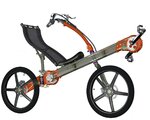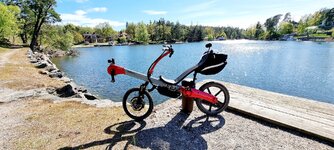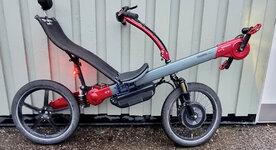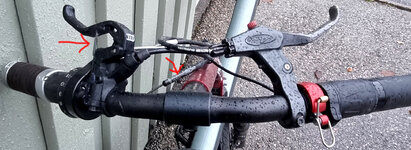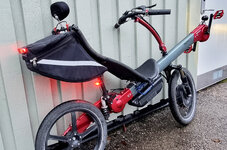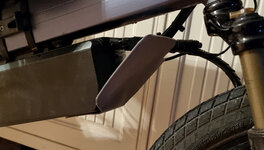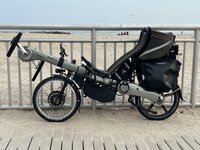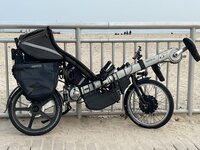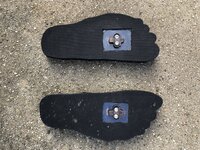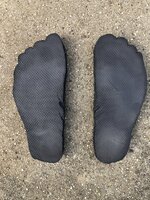Cyberskater
New Member
I have a very special bike, well in fact I have several special bikes but this one in particular is a bit tricky to add an electrical assist to. It is a Dutch Flevobike GreenMachine recumbent with some distinct design features. The drive-line is completely enclosed within the single tube frame, and in the middle sits a modified Rohloff 14-speed IGH. The wheels are 5-spoked carbon fibre, with a drum brake in the rear and a disc brake and a SON dynamo in the front. All of this gives it a very sleek and elegant look, which I would like to maintain. They used to offer an integrated e-assist, which I have in my velomobile from the same company, but it is discontinued for the time being. I want to keep the wheels, and a regular mid-drive is not possible with this BB. I enclose two pictures, one is a cut-away CGI showing the drive line, and the other one is similar to my bike, but I have a suspension fork, giving more room between the frame and the front wheel.
Any suggestions? I'm looking at a OneMotor friction drive. There will probably be enough room at the front wheel. I don't use the kick-stand, and there is a dedicated mount for that in the frame. But will the sensor on the cranks send a strong enough signal to the motor at this distance?
Any suggestions? I'm looking at a OneMotor friction drive. There will probably be enough room at the front wheel. I don't use the kick-stand, and there is a dedicated mount for that in the frame. But will the sensor on the cranks send a strong enough signal to the motor at this distance?
